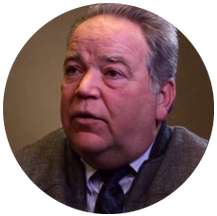What do a pastor, stockbroker and school superintendent share in common?
Some of these trusted professionals, like thousands of people across the country and the world, have succumbed to gambling addiction. Like a virus or deadly bacteria, pathological gambling preys on all kinds of people from all walks of life.
Some research tracks cultural or age-related differences in the gambler’s drug of choice. Older women, for instance, seem to prefer casino slot machines. Often divorced or widowed with grown children, they crave excitement in a place “where everybody knows their name.”
African Americans in urban areas tend to roll dice and play Tonk. Younger college age males typically bet the farm on sports and often via on-line betting sites.
According to research directed by Dr. Timothy Fong, an associate professor and co-director of the UCLA Gambling Studies program, a disproportionate number of Asian Americans become problem gamblers. Prevalence rates in this community reach 6% versus the “norm” of 1-2%. Card games and Mah Jong serve as major attractions for a culture with roots in numerology and a more defined historical ideology around luck.
But while the hooks may differ, the resulting brain disease follows common patterns. Gambling triggers the release of dopamine, the brain’s pleasure chemical. The brain begins craving more and more dopamine, literally rewiring itself until this desire overrides nearly every other rational or physiological need.
Sadly, outward behaviors evidenced by those addicted to gambling also are strikingly similar. They lie, deceive and sometimes even steal, as in the cases of the three professionals noted at the outset of this blog. They neglect family and other responsibilities, as gambling becomes “the other woman” who demands exclusive attention.
While hobbled by incredible guilt and shame, these negative emotions often only tether them even more tightly to their addiction. They rationalize their behavior believing that “if I just had one more roll, I could break even and my family would never even have to know about my losses.”
It’s this pointless desire for one more roll that led us to the name of Maryhaven’s gambling addiction education effort. We know people think they need one more roll, but what they really need is One More Chance.
Equally sad is the commonality of the experiences of those who love a gambler. According to research conducted by Gaboury Ladouceur in 1993, at least ten other people are affected by the negative consequences associated with disordered gambling.
Living around this disease takes a toll on the entire family and extended family – emotionally, socially, spiritually, physically and, of course financially. Its consequences can give rise to depression, stress-related illnesses, bankruptcy and more. The worry can be constant and debilitating. About one in five gambling addicts attempt suicide.
Thanks to the Alcohol, Drug and Mental Health Board of Franklin County, Maryhaven is the only authorized provider in Ohio offering services without cost to both problem gamblers AND their families, provided they are Franklin County residents.
Our help can make a difference for you and for someone you love. Contact Bruce or Maria at 614-324-5425 today.
We celebrate America as a land of equal opportunity in July. Let’s also take the time to mark how to overcome a life-changing disease that can touch any of us as well.

